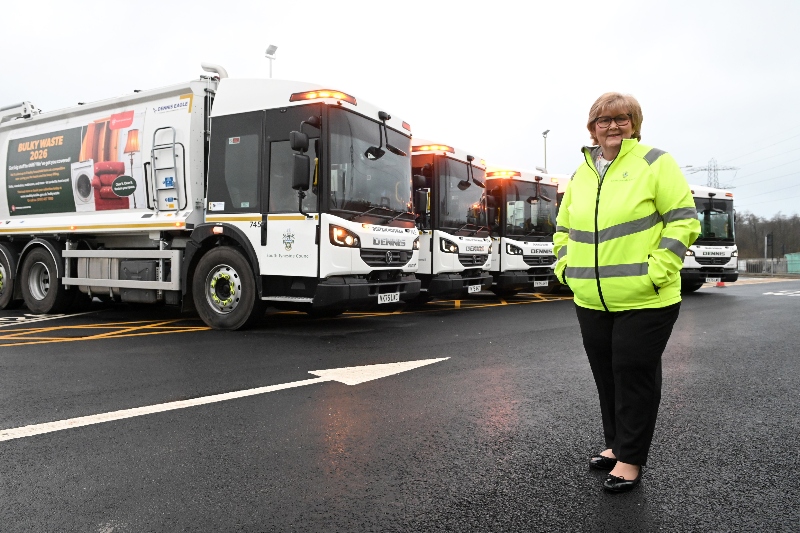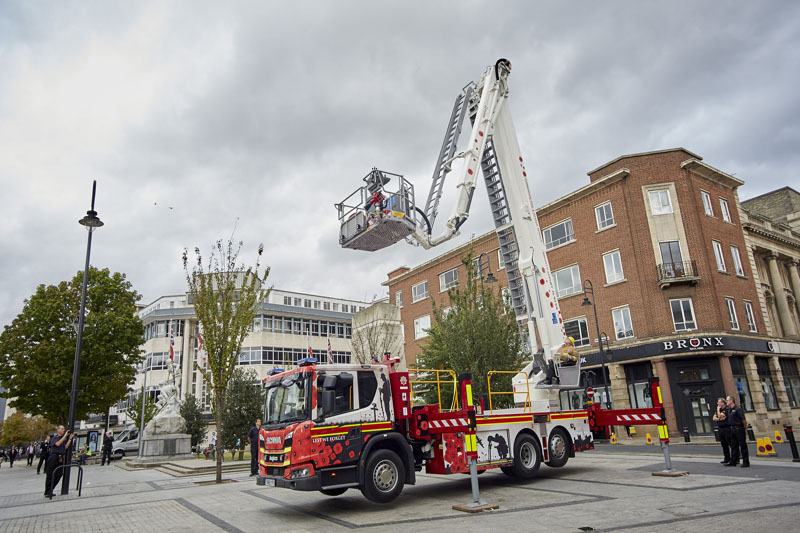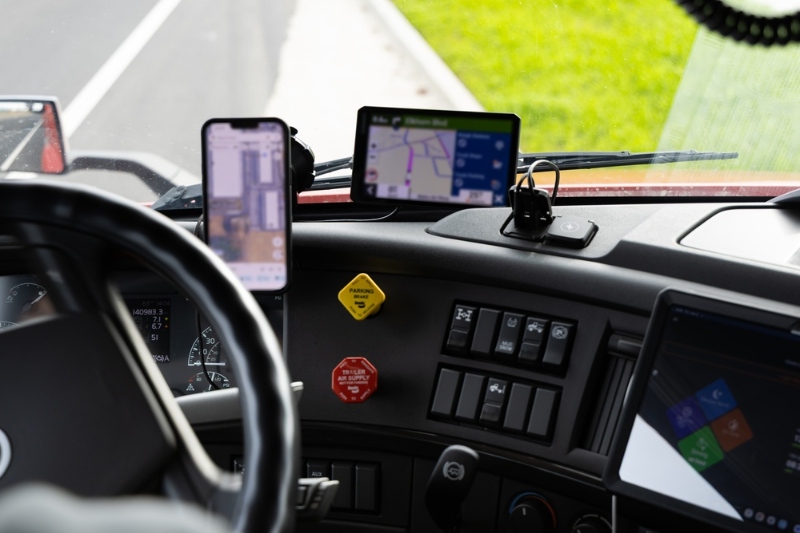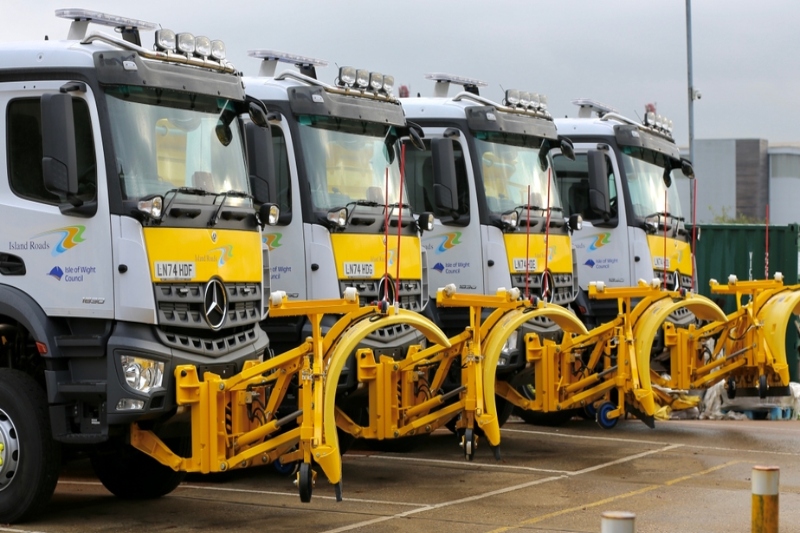Fleet managers in enlightened councils are 'going green', but must weigh up conflicting opinion from informed circles when trying to pick the best fuels for the purpose, reports Mike Gerber
In the green corner there's the Energy Savings Trust (EST), the agency the government has empowered to dispense grants to fleet operators that switch to vehicles powered by alternative fuels - gas, electric, biodiesel, hybrids.
And across the ring, convinced its corner is green enough, is the Freight Transport Association that, while eyeing up the prospects for alternatives, upholds the virtues of traditional fuels as cleaned up to conform to ever-tighter Euro emission standards. A growing number of authorities are trying out the alt-fuels anyhow. Should they bother?
Passing gas
”When did you last see a dirty truck?,” asks Geoff Day, FTA's chief engineer. Well, there's a filthy one outside the author's front door on which someone has inscribed 'Spurs' in the grime. Day, of course, is talking about fuel.
“Gas has benefits but also problems - availability, where are you going to get it from? You have to have the refuelling facilities. Local authorities have to take it on themselves unless they're very lucky and have a gas station near them. And some gas conversions emit high quantities of methane.
“Many gas engines are superb, some conversions are superb, some pretty poor. Iveco gas engines are good. Beyond that, I wouldn't comment.”
Another alternative currently arousing interest is biodiesel - diesel mixed with degradable fuel such as waste cooking oil. The benefits are lower noxious emissions and tax breaks. However, Day warns: “Manufacturers will generally only give a warranty on their engines for a maximum of five per cent biodiesel. Some of our members who operated more than five per cent had some very expensive engine failures - big name manufacturers have shown us the engines they've stripped.
“The problem with all the alternatives,” he maintains, “is that diesel engines are so incredibly clean now, there's only a marginal difference between them. Euro 4 and 5 emission standards will be coming out around the end of this year, you question whether people should go any further?”
Alternative rejected
What about the tax benefits then? “The government has just decided to phase out LPG fiscal incentives,” he says, LPG being liquefied petroleum gas, the gas for small vehicles such as cars. Fuel duty incentives remain for CNG (compressed natural gas) and LNG (liquefied natural gas), the gas alternatives for ,larger vehicles, but Day wonders: “For how long? The government's LPG announcement has taken away people's confidence.”
A setback for gas advocates was Scania's recent decision to shelve plans to introduce its CNG-powered 4-Series trucks into the UK. Scania blamed a reduction in EST grants, telling FTA: “The feedback we have received indicates that operators have now decided against pursuing the gas-powered option.” Over then to Colin Matthews, head of EST's TransportEnergy programmes. Is anybody else planning “to do a Scania?”, we ask him.
“No, just the opposite,” Matthews comments. “A number of vehicles are being developed, from 3.5 tonne vans up to 44 tonners. At least two manufacturers have developments on natural gas vehicles coming to market this year.”
The gas kit he cites ranges from Mercedes Sprinter and Iveco Daily vans to Iveco-Eurotech's 16 to 24-tonner rigids, to a Foden's diesel/ natural gas dual-fuel 44-tonner.
So what's this fuss about EST grants? In May, EST said it was streamlining grant administration to make it easier for clients to successfully apply for grants throughout the year. The rethink came after a high level of demand had forced EST to freeze all grants months into the last financial year when it ran out of money.
Now the grant allocation will be more evenly spread, which may upset claimants earlier in the annual cycle. EST argues this will “ensure new cleaner, low-carbon vehicles and technologies that come to the market later in the year will be able to benefit”.
Natural gas - 20 times cleaner
Matthews remains unfazed by LPG's fiscal tweaking. “The fact is its duty rate will reflect emissions-performance in relation to other fuels, increasing over time because petrol and diesel are getting better.“The government has given a three-year forward statement on how it will handle duty; LPG's only increasing by 1p per litre above the increase that petrol and diesel will get - it's 40p a litre lower currently - that isn't going to be wiped out overnight. For the natural gases, there's no duty increase over the next three years. So it's a very positive situation.”
And he underlines: “Natural gas used in heavy vehicles is still some 20 times cleaner than diesel, the culprit for two noxious emissions, PM10s and NoX.”
Further points Matthews makes are that the latest gas trucks have overcome the reliability problems experienced with earlier incarnations, the refuelling infrastructure is developing fast with grants for companies such as Esso CNG, Key Gas, Chive to install equipment.
Matthews says: “The clear market for CNG and LNG lies in return-to-base fleets running into city centres - a cap that clearly fits many councils.” Authorities which fail to meet EU air quality targets by next year will have to declare it and forge an action plan, he says.
The will is there. A recent Local Government Association study showed that 65 per cent of councils now use clean fuel or low-carbon vehicles. Let's see how some who have taken a punt on the alternatives are faring?
Positive experiences
Walsall is an interesting example; its Streetcare section inherited four 26-tonne Scania refuse trucks after a council rationalisation. These are about four years old now and due for replacement. Streetcare had problems with them and currently relies on a clean diesel fleet for rubbish collections.
The council, though, is running dual-fuelled gas-petrol Maestro 35 cwt vans for catering, traffic and cemetery services, and remains keenly interested in other alternatives.
Geoff Lainchbury, transport co-ordinator explains: “This has been a learning process for Walsall council and we have had to develop an infrastructure to manage the use of the gas powered vehicles. Filling up has not caused any problems as we generally use the local bus station or if necessary petrol stations.
“Where we have experienced some difficulty has been when a vehicle has developed a mechanical fault as there are few Corgi registered repairers able to deal with compressed natural gas in the area.
“Diesel is a lot cleaner and greener than ever before but we are also currently looking at alternative fuels for when the fleet needs to be replaced. Gas will be considered along with electric vehicles and those which run on bio-fuel. It may be that we look into using different fuels for vehicles with different uses,” he concludes.
Electric & biodiesel vehicles
A council which has scooped several green awards is Kingston upon Hull. Biodiesel fuel is extensively used to power the authority's conventional trucks, and it also boasts Britain's largest fleet of electric cars with 50 Peugeots.
The council reports no problems with bio-fuel, supplied by Greenergy GlobalDiesel since 2002. And its electrical fuelling infrastructure costs are minimal as the primary supply already exists, with vehicles charged up from any 13amp/3-pin power supply. It costs approximately 32p to charge a small car or van covering 50-60 miles, returning near zero emissions from green electricity.
A neat touch is that the authority funds a 'carbon sink' through the planting of a semi-mature tree for each vehicle it buys. Materials from the discarded vehicles are recycled.
Fleet manager Garry Middleton investigated gas but has not gone with it. He reports: “This is because we're a low-mileage turnover fleet and you've got to put in the infrastructure. It works for some people quite clearly and we're not decrying that.”
LPG installs
Over in Newcastle, the Tyneside council has swung heavily behind LPG; as Brian Fothergill of the city's transport department boasts: “We're the only council approved by EST to do LPG installations in our own premises - not conversions - our light vehicle workshop is installing another technology. “We've done 296 LPG installs of which 133 are for our own fleet, and 163 for other companies and councils.”
These vehicles use petrol to start, then switch to gas. “We've got some that have not had any petrol refill for nine months,” says Fothergill.
The council operates 317 such vehicles, mainly Citroen Berlingos, some Ford Transits, including a few bought ready from manufacturers. They are widely used by the council's plumbers, electricians, horticultural workers, grounds maintenance staff and supervisors. Storage tanks were installed by the fuel supplier, Flogas, as part of the contract.
The council trialled LNG for heavier vehicles and found it operationally sound, but “other issues didn't make it valid,” says Fothergill. “LPG was the most practical, easy to get hold of, easy to sort, and involved minimal installation interference.”
For heavy work such as refuse collection, Newcastle uses biodiesel - five per cent derived from rapeseed or coconut oil - supplied by Petrol Plus. “No installation is required, it's a painless transition.”
Additionally, the authority is piloting the use of the hybrid diesel-electric buses on its Quayside Transit services. These buses, from Holland, are among the cleanest in the world.
The CNG approach
Westminster's waste contractor, Onyx, has run a fleet of 23 caged-recycling Iveco Daily trucks on CNG since last September without tears. “The drivers like them because they are quieter,” says the council's senior environment manager, Joy Thompson.
In Madrid she saw for herself how the city council runs its entire fleet on CNG, including its heaviest vehicles: “It's excellent, it's worked well for several years, they're delighted with it.” Madrid though does have the advantage of a state-ofthe- art filling station.
“One of the problems we have is that don't have large depot in Westminster,” says Thompson. “It makes life difficult.” Onyx's Westminster recycling trucks are refuelled at various locations, but the council is investigating other options.
Up and down the country then, councils are experimenting with alt-fuels. Now the technical hitches have largely been overcome, the infrastructure network is certainly developing fast.






